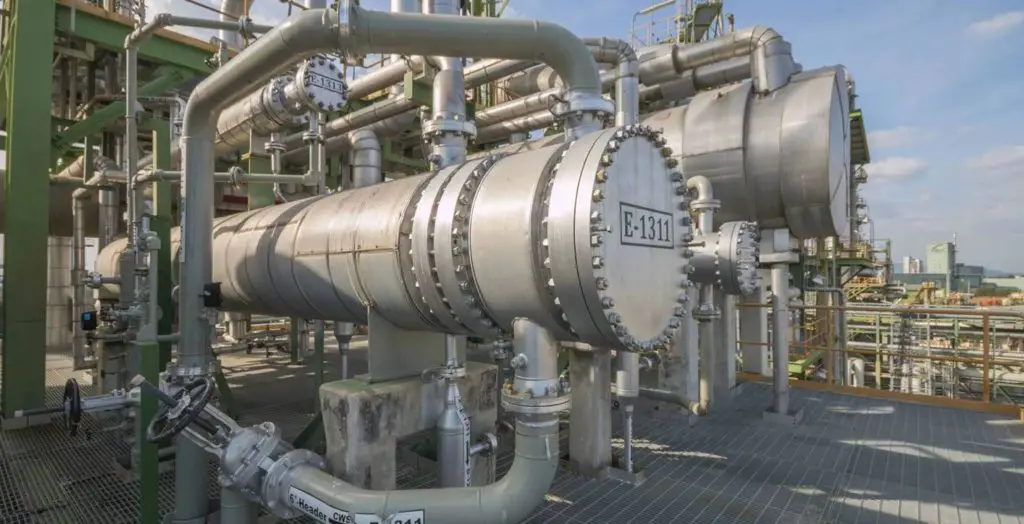6 HOURS ON-DEMAND VIDEO
7 DOWNLOADABLE RESOURCES
NUMEROUS PRACTICE SESSIONS
FULL LIFETIME ACCESS
30-DAY MONEY-BACK GUARANTEED
ACCESS ON MOBILE AND TV
ABOUT THIS TRAINING COURSE
Heat exchangers of various designs and applications are encountered nowadays throughout refining, petrochemical and process industries as well as in power generation and environmental engineering.
This course is designed to provide you with a complete understanding of construction details and functioning of heat exchangers.
This understanding is a prerequisite for a successful operation of your plant and piping system.
In this course, we will cover many heat exchanger designs such as plate and frame, fired heaters, double pipe and spiral heat exchangers. But the focus will be on shell and tube heat exchangers as these are the most popular and widely spread heat transfer equipment.
The course includes extensive graphics, cross-sectional views, real world video footage, and 3D animations.
This will give you a virtual practical exposure on heat exchangers.
The objective of this training course is fourfold :
ONE. Break down for you all the heat exchanger operating principles into easily digestible concepts, like heat transfer theory and process control just to name a few…
TWO. Illustrate through 3D animations and cross-sectional views the main heat exchanger mechanical components, state their function and operating limits, like tube bundles, baffles, floating heads and tube sheets…
THREE. Provide guidelines and best practices for operation, maintenance and troubleshooting of heat exchangers. The guidelines presented in this course are in accordance with the latest TEMA standards
FOUR. Present a step-by-step design methodology. We will show you how to proceed in the design of a heat exchanger in the daily practice, how to determine the effective temperature difference for the heat transfer and how to calculate the heat transfer coefficient using simple equations. You will learn from our industrial experience what we wrongly calculated or what we wrongly planned during project startup, debottlenecking and commissioning. This should undoubtedly help you minimize the mistakes in the design of your heat exchangers.
So as you can here, detailed technical descriptions and basic step-by-step instructions will be provided to you along with practice sessions, quizzes and numerous downloadable resources, to emphasize the key learning points.
- Design, inspect, maintain and operate heat exchangers and analyze their performance in a professional manner
- Select and size a shell and tube heat exchanger for a given duty
- Understand design guidelines and specifications when allocating fluids
- Identify the problems in operation that lead to performance deterioration
- Determine correct troubleshooting techniques
- Know, understand and interpret TEMA standards and terminologies for shell and tube heat exchangers
- List advantages and drawbacks of TEMA Types and associate the most appropriate type with operating conditions and fluids properties
- Describe the heat exchange laws and identify key parameters impacting the exchange coefficients and pressure drops
- Employ the concepts of heat transfer coefficients and determine their overall effect on heat exchanger fouling
- Be an active and efficient communicator during meetings with heat exchanger vendors
- Get access to useful charts and diagrams to solve daily heat exchanger problems
- Get access to valuable shell and tube heat exchanger design tables according to DIN 21184 and 21191 standards to properly design shell and tube heat exchangers
This WR Training course on Heat Exchangers is suitable to a wide range of technical professionals but will greatly benefit :
- Mechanical, Process and Chemical Engineers
- Operation, Technical Service and Maintenance Professionals
- Plant Operators
- Engineers, Consultants and Sales professionals
- Technical professionals responsible for heat transfer equipment inspection
- Technical professionals responsible for interdisciplinary energy projects
Some engineering or field knowledge is preferable but not mandatory. All the concepts are explained in depth using an easy to understand language to allow students to build their knowledge from the ground up
PREVIEW THIS TRAINING COURSE
Would you like to contact us ? We are here to help !
Fore more information about this training course, please fill in the contact form hereafter then click on send :


